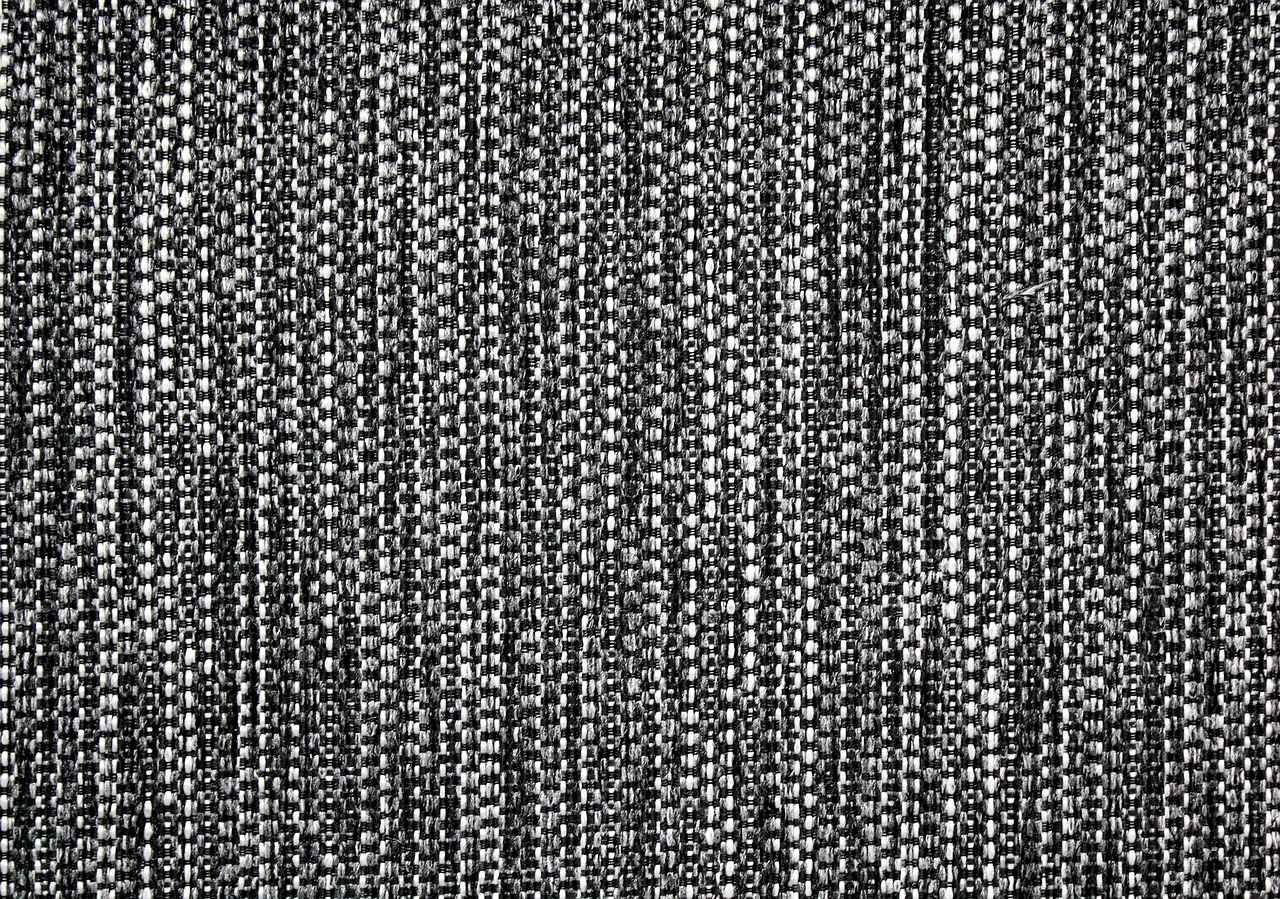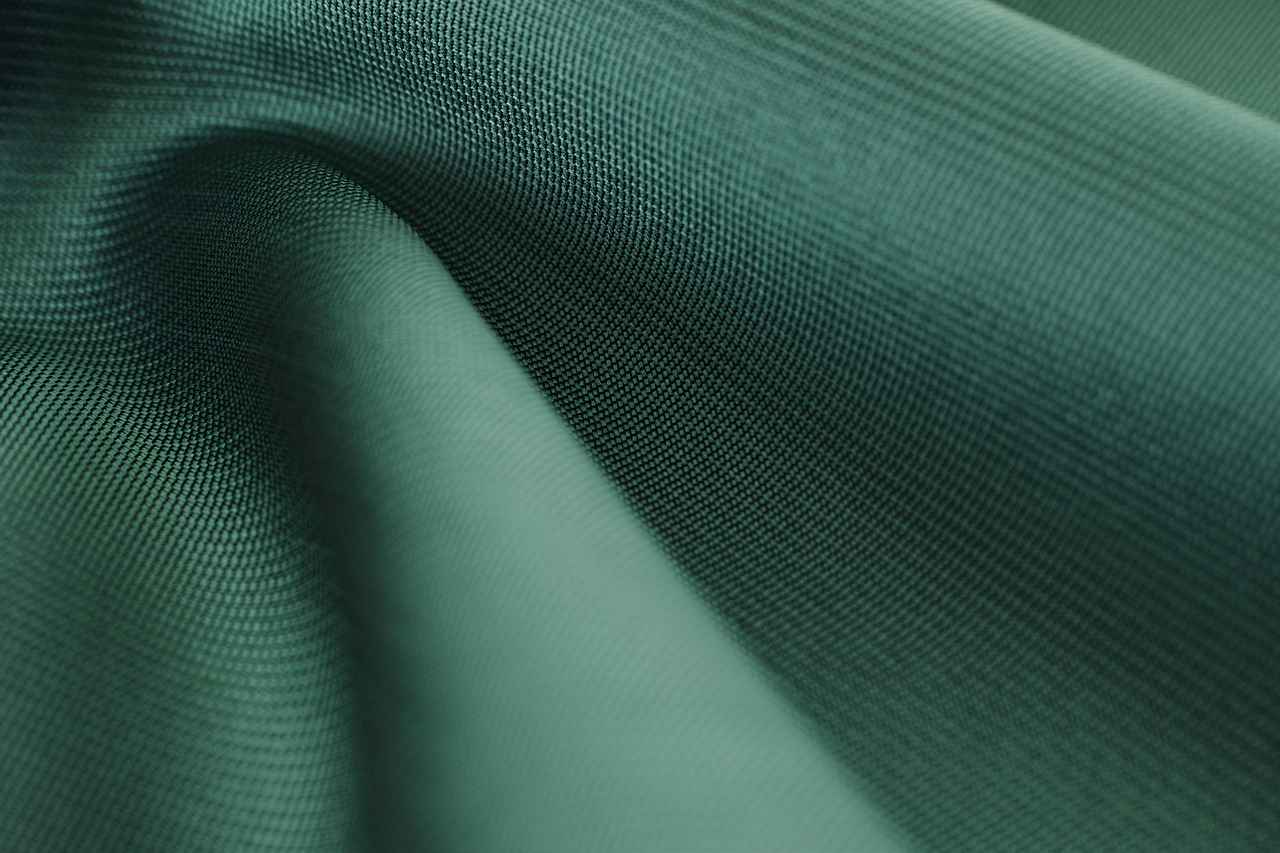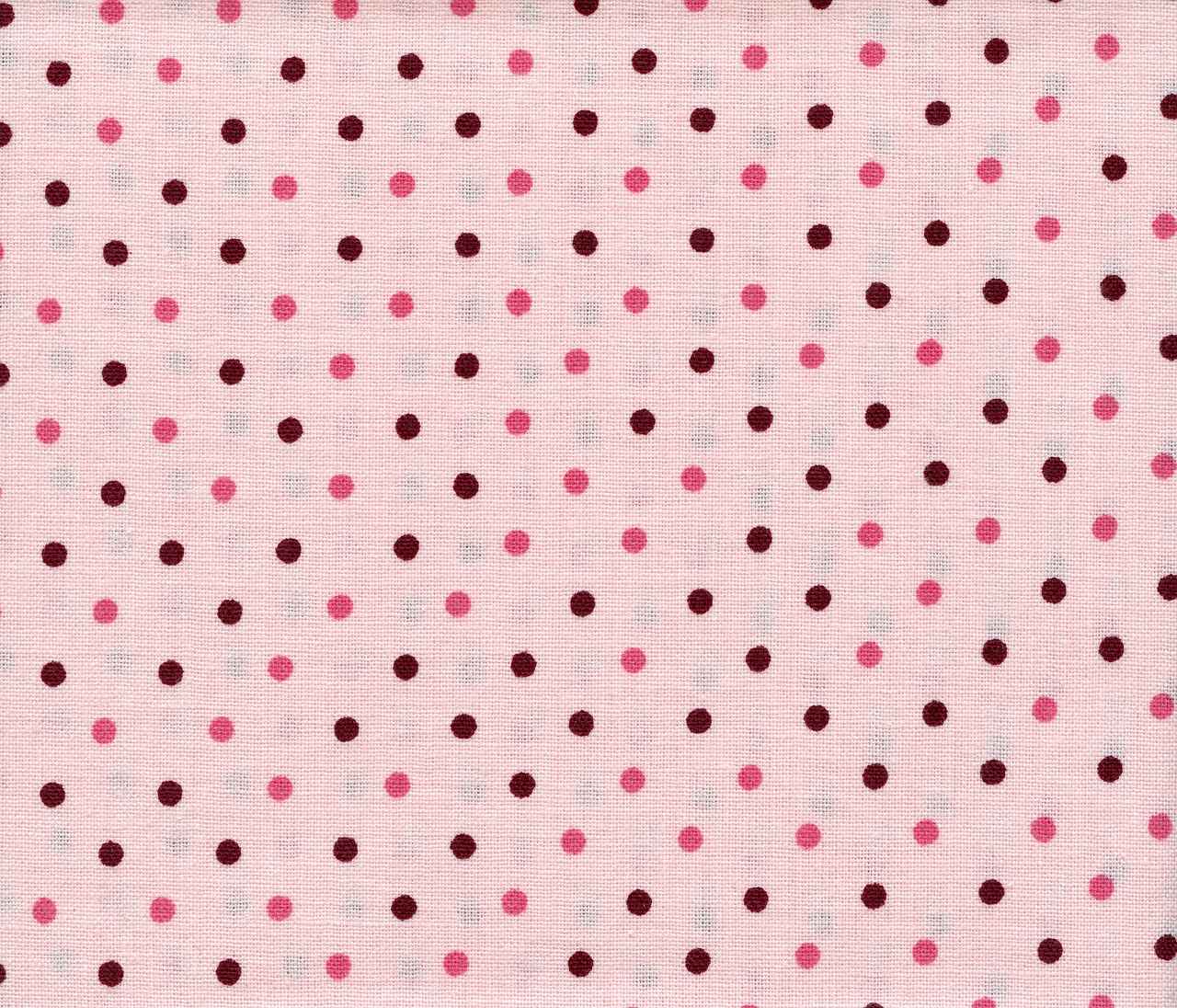This article delves into the myriad benefits of wearing night dresses made from natural fabrics. By focusing on their positive effects on skin health, comfort, and environmental sustainability, we aim to highlight why making the switch can enhance your nighttime experience.
What Are Natural Fabrics?
Natural fabrics are textiles derived from organic sources, including plants and animals. Common examples include cotton, linen, silk, and wool. These materials are not only biodegradable but also offer superior breathability compared to synthetic options.
How Do Natural Fabrics Benefit Skin Health?
- Reduced Skin Irritation: Natural fabrics minimize skin irritation that can arise from synthetic materials, which often contain harmful chemicals and dyes.
- Hypoallergenic Properties: Many natural fabrics are hypoallergenic, making them ideal for individuals with sensitive skin.
- Softness and Comfort: The inherent softness of natural fabrics ensures a comfortable sleeping experience, promoting better skin health.
- Moisture Absorption: Natural fabrics excel in moisture-wicking, keeping skin dry and reducing the risk of acne and fungal infections.
Why Choose Cotton for Night Dresses?
Cotton is one of the most favored natural fabrics for nightwear due to its softness, breathability, and durability. It allows for optimal air circulation, ensuring a comfortable sleep environment.
- Breathability of Cotton: Cotton’s breathable nature helps regulate body temperature, reducing the likelihood of overheating during sleep.
- Durability and Longevity: Cotton night dresses are robust and can endure frequent washing, maintaining their comfort and integrity over time.
Are Linen Night Dresses Good for Skin?
Linen, derived from flax fibers, is another excellent choice for night dresses. Its unique properties offer distinct advantages for skin health.
- Natural Cooling Effect: Linen is known for its cooling properties, making it perfect for warm climates or hot sleepers.
- Antimicrobial Properties: Naturally antimicrobial, linen helps inhibit the growth of bacteria and fungi, ensuring better hygiene during sleep.
Silk Night Dresses: A Luxurious Option?
Silk night dresses provide a luxurious feel and are renowned for their smooth texture, which can be beneficial for skin hydration.
- Benefits of Silk for Skin Hydration: Silk contains natural proteins that help retain moisture, making it ideal for enhancing skin hydration during sleep.
- Minimizing Friction: The smooth surface of silk reduces friction against the skin, preventing irritation and promoting restful sleep.
Environmental Impact of Natural Fabrics
Choosing natural fabrics not only benefits your skin but also positively impacts the environment. Sustainable practices in fabric production contribute to a healthier planet.
- Biodegradability of Natural Fabrics: Natural fabrics break down naturally over time, reducing landfill waste compared to synthetic materials.
- Sustainable Production Practices: Many natural fabrics are produced using eco-friendly farming methods, supporting biodiversity and minimizing harmful chemical use.
How to Care for Natural Fabric Night Dresses?
Proper care is essential to ensure the longevity of your natural fabric night dresses and maintain their beneficial properties.
- Washing Techniques: Use gentle washing methods, such as hand washing or delicate cycles, to preserve the integrity of the fabric.
- Drying and Storage Tips: Air drying is recommended to prevent shrinkage, while storing away from direct sunlight helps maintain color and texture.
In summary, switching to natural fabric night dresses can significantly enhance your skin health, comfort, and environmental impact. With the right materials and care, you can enjoy a restful night’s sleep while contributing to a more sustainable future.

What Are Natural Fabrics?
Natural fabrics are textiles crafted from fibers sourced from plants or animals, such as cotton, linen, silk, and wool. These materials are not only biodegradable but also offer enhanced breathability compared to their synthetic counterparts. The shift towards natural fabrics is gaining momentum, particularly in the realm of sleepwear, as more individuals recognize their numerous benefits for both skin health and the environment.
Natural fabrics are celebrated for their many advantages. Here are some key benefits:
- Biodegradability: Unlike synthetic fabrics, natural materials decompose naturally, reducing landfill waste and promoting environmental sustainability.
- Breathability: Natural fibers allow better airflow, which helps regulate body temperature and keeps the skin comfortable.
- Comfort: The softness of natural fabrics makes them gentle on the skin, providing a more pleasant wearing experience.
Choosing natural fabrics for sleepwear can significantly enhance your sleep quality. Here’s why:
- Moisture Management: Natural fabrics excel at absorbing moisture, which helps keep the skin dry and reduces the risk of skin irritations.
- Temperature Regulation: Materials like cotton and linen help maintain a comfortable body temperature, ensuring a restful night’s sleep.
- Reduced Allergens: Many natural fabrics are hypoallergenic, making them suitable for individuals with sensitive skin.
When it comes to night dresses, certain natural fabrics stand out:
- Cotton: Known for its softness and breathability, cotton is a popular choice for sleepwear. It’s durable and easy to care for, making it a practical option.
- Linen: Made from flax fibers, linen offers a unique cooling effect, making it an excellent choice for warm climates.
- Silk: Luxurious and smooth, silk night dresses provide exceptional comfort and help maintain skin hydration.
Natural fabrics play a crucial role in promoting skin health due to their unique properties:
- Reduced Irritation: Wearing natural fabrics minimizes the risk of skin irritation caused by synthetic fibers.
- Hypoallergenic Qualities: Many natural textiles are less likely to cause allergic reactions, making them suitable for all skin types.
- Enhanced Comfort: The softness of natural fibers ensures a gentle touch against the skin, leading to a more enjoyable sleeping experience.
Switching to natural fabrics not only benefits your skin but also positively impacts the environment:
- Sustainable Practices: The production of natural fabrics often involves eco-friendly farming methods that promote biodiversity.
- Lower Carbon Footprint: Manufacturing natural fabrics typically requires less energy and fewer resources compared to synthetic options.
In summary, natural fabrics are an excellent choice for night dresses. They provide numerous benefits for skin health, comfort, and environmental sustainability. By opting for materials like cotton, linen, and silk, you can enhance your sleep experience while also making a positive impact on the planet.

How Do Natural Fabrics Benefit Skin Health?
Natural fabrics have gained popularity in recent years, particularly for their numerous advantages regarding skin health. As more people become aware of the impact of their clothing choices, the shift towards natural materials is not just a trend but a conscious decision for better living. This section will delve into the various ways in which natural fabrics can significantly enhance skin health.
Natural fabrics, such as cotton, linen, and silk, are not only comfortable but also provide essential benefits for skin health. Here are some key advantages:
- Reduced Skin Irritation: One of the most significant benefits of wearing natural fabrics is the reduction in skin irritation. Unlike synthetic materials, which often contain harsh chemicals and dyes, natural fabrics are gentler on the skin, minimizing the risk of allergic reactions and discomfort.
- Hypoallergenic Properties: Many natural fabrics possess hypoallergenic properties, making them suitable for individuals with sensitive skin. This characteristic helps to reduce the likelihood of skin irritations and rashes.
- Moisture Absorption: Natural fabrics excel at moisture absorption. They can wick away sweat and keep the skin dry, which is crucial for preventing skin issues like acne and fungal infections. This moisture management ensures that the skin remains healthy and balanced.
- Breathability: The breathability of natural fabrics allows for proper air circulation, which helps maintain a comfortable body temperature. This is particularly important during sleep, as overheating can lead to disrupted rest and skin stress.
- Softness and Comfort: The inherent softness of natural fabrics provides a comfortable wearing experience. This comfort is vital for promoting restful sleep, which in turn supports overall skin health.
Choosing natural fabrics over synthetic options is not just a matter of comfort; it’s also about making a healthier choice for your skin. Synthetic materials often trap moisture and heat, leading to increased perspiration and potential skin issues. In contrast, natural fabrics allow the skin to breathe, reducing the risk of irritation and promoting a healthier skin environment.
Yes, natural fabrics can indeed help maintain skin hydration. Fabrics like silk contain natural proteins and amino acids that can aid in moisture retention. This is particularly beneficial for individuals looking to enhance their skin’s hydration levels while they sleep. The smooth texture of silk also minimizes friction against the skin, which can prevent irritation and promote a more restful sleep experience.
Another remarkable advantage of certain natural fabrics, such as linen, is their antimicrobial properties. Linen is known to inhibit the growth of bacteria and fungi, contributing to better skin health and hygiene. This makes linen an excellent choice for nightwear, especially for those prone to skin infections or irritations.
In summary, the benefits of natural fabrics for skin health are numerous and compelling. From reduced irritation to enhanced moisture absorption and breathability, these materials provide a holistic approach to skincare through clothing. By making the switch to natural fabrics, individuals can enjoy not only greater comfort but also significant improvements in their skin health.
Reduced Skin Irritation
When it comes to choosing nightwear, the fabric can make a significant difference in your overall comfort and skin health. One of the most compelling reasons to opt for natural fabrics is their ability to reduce skin irritation. This section delves deeper into how switching to natural fabrics can positively impact your skin.
Synthetic fabrics, often made from polyester, nylon, or acrylic, can lead to a variety of skin issues. These materials are frequently treated with chemicals and dyes that can provoke allergic reactions or discomfort. In contrast, natural fabrics are derived from organic sources and are generally free from harsh chemicals, making them a better choice for sensitive skin.
- Breathability: Natural fabrics like cotton and linen allow air to flow freely, reducing moisture build-up that can lead to skin irritation.
- Hypoallergenic Properties: Many natural fabrics are inherently hypoallergenic, making them suitable for individuals with sensitive skin or allergies.
- Soft Texture: The softness of natural fibers such as cotton and silk minimizes friction against the skin, further decreasing the likelihood of irritation.
When selecting nightwear, consider the following natural fabrics known for their skin-friendly properties:
1. Cotton: Soft and breathable, ideal for everyday wear.2. Linen: Known for its cooling effect, perfect for hot sleepers.3. Silk: Luxurious and smooth, helps maintain skin hydration.4. Wool: Offers warmth while being breathable, suitable for colder climates.
For those who suffer from allergies, wearing natural fabrics can be a game-changer. The absence of synthetic chemicals in natural textiles means that there is a lower risk of triggering allergic responses. This is particularly important for individuals with conditions like eczema or dermatitis, where skin irritation can be exacerbated by synthetic materials.
When selecting a natural fabric for your nightwear, consider factors such as:
- Climate: Choose lightweight fabrics like cotton for warmer weather and heavier ones like wool for colder temperatures.
- Skin Sensitivity: If you have sensitive skin, opt for fabrics like silk or organic cotton, which are less likely to irritate.
- Personal Preference: Some may prefer the luxurious feel of silk, while others may opt for the crispness of linen.
Switching to natural fabrics can lead to long-term benefits for your skin. By reducing irritation, you can experience fewer flare-ups of skin conditions and improved overall skin health. Additionally, natural fabrics are often more durable, meaning you can enjoy their benefits for a longer period without compromising on comfort.
In summary, the choice of fabric for your nightwear can have a profound impact on your skin health. By opting for natural fabrics, you not only reduce the risk of irritation but also enhance your overall comfort and well-being during sleep.
Hypoallergenic Properties
When it comes to selecting the right fabrics for your nightwear, understanding the benefits of is crucial, especially for individuals with sensitive skin. Many natural fabrics, such as cotton, linen, and silk, are renowned for their ability to minimize the risk of allergic reactions and skin irritations, making them ideal choices for night dresses.
Natural fabrics are derived from organic sources, which often means they are free from the harsh chemicals and synthetic dyes that can irritate the skin. Unlike synthetic materials, which may contain allergens, natural fibers are typically softer and more breathable. This combination not only enhances comfort but also significantly reduces the likelihood of skin reactions.
- Reduced Allergic Reactions: Natural fabrics like cotton and linen are less likely to cause allergic responses, making them suitable for those with conditions such as eczema or psoriasis.
- Minimized Skin Irritation: The absence of synthetic materials means fewer irritants are in contact with the skin, leading to a more comfortable sleep experience.
- Enhanced Breathability: Natural fibers allow for better air circulation, which helps to keep the skin dry and reduces the chance of rashes or fungal infections.
Cotton is one of the most popular choices for hypoallergenic nightwear. Its soft texture and natural breathability make it an excellent option for anyone seeking comfort and skin health. Furthermore, cotton is known for its ability to wick moisture away from the skin, helping to maintain an optimal level of hydration.
Linen, derived from the flax plant, is another fantastic choice for hypoallergenic night dresses. It boasts unique properties that not only promote skin health but also enhance comfort:
- Natural Cooling Effect: Linen fibers allow for excellent airflow, keeping the body cool during warmer nights.
- Antimicrobial Properties: Linen is naturally resistant to bacteria and fungi, which helps maintain a cleaner sleeping environment.
Silk is often considered a luxurious fabric, but it also offers hypoallergenic benefits. Its smooth surface reduces friction against the skin, which is particularly beneficial for those prone to irritation. Additionally, silk contains natural proteins that can help retain moisture, making it an excellent choice for enhancing skin hydration while you sleep.
Switching to natural, hypoallergenic fabrics not only benefits your skin but also supports environmental sustainability. Natural fabrics are biodegradable, which means they decompose naturally, reducing landfill waste. Furthermore, many of these fabrics are produced using sustainable practices that minimize the use of harmful chemicals.
To maintain the hypoallergenic properties of your natural fabric night dresses, proper care is essential:
- Gentle Washing: Use a mild detergent and wash on a delicate cycle to preserve the integrity of the fabric.
- Air Drying: Avoid using a dryer, as high heat can damage the fibers. Instead, hang your garments to air dry.
- Storage Tips: Store your night dresses in a cool, dry place away from direct sunlight to prevent fading and maintain their quality.
By choosing night dresses made from hypoallergenic natural fabrics, you not only prioritize your skin health but also contribute to a more sustainable future. Embrace the comfort and benefits of these materials for a better night’s sleep.
Softness and Comfort
When it comes to choosing nightwear, the softness and comfort of the fabric can significantly enhance your overall sleeping experience. Among various options available, natural fabrics stand out due to their exceptional qualities that promote a restful night’s sleep.
Softness plays a crucial role in determining how comfortable a night dress feels against your skin. Fabrics like cotton, linen, and silk are renowned for their gentle touch and luxurious feel. Unlike synthetic materials, which can often feel coarse or irritating, natural fabrics provide a soothing experience that can help you unwind after a long day.
Natural fabrics offer several benefits that contribute to a comfortable night’s sleep:
- Breathability: Natural materials allow air to circulate, which helps regulate body temperature. This is particularly beneficial during warmer months or for individuals who tend to get hot while sleeping.
- Moisture Management: Fabrics like cotton and linen can absorb moisture, keeping you dry and comfortable throughout the night. This is essential for preventing discomfort caused by sweat, which can disrupt your sleep.
- Hypoallergenic Qualities: Many natural fabrics are less likely to cause allergic reactions, making them suitable for sensitive skin. This means fewer irritations and a more peaceful sleep.
Cotton is often the go-to fabric for nightwear due to its soft texture and durability. It is a versatile fabric that not only feels good against the skin but also stands the test of time:
- Comfort and Flexibility: Cotton night dresses are designed to move with your body, providing ultimate comfort without restricting movement.
- Easy Care: Cotton is machine washable and retains its softness even after multiple washes, making it a practical choice for everyday wear.
Linen, made from flax fibers, is another excellent option for night dresses. It offers unique benefits:
- Natural Cooling Effect: Linen has a natural cooling effect that helps keep you comfortable during hot nights, making it ideal for summer.
- Durability: Although initially coarse, linen becomes softer with each wash, enhancing its comfort over time.
Silk is often associated with luxury and comfort. Its smooth surface reduces friction against the skin, which can be beneficial for maintaining skin hydration:
- Moisture Retention: Silk helps to retain moisture in the skin, making it an excellent choice for those looking to keep their skin hydrated while they sleep.
- Luxurious Feel: The soft and smooth texture of silk adds a touch of elegance to your nightwear collection.
When selecting a night dress, consider the following factors to ensure you choose a fabric that promotes softness and comfort:
- Skin Sensitivity: If you have sensitive skin, opt for hypoallergenic natural fabrics like cotton or bamboo.
- Climate: For warmer climates, consider breathable fabrics like linen, while cooler climates may call for the warmth of cotton or silk.
- Personal Preference: Ultimately, your comfort should guide your choice. Test different fabrics to see which one feels best against your skin.
In summary, the choice of fabric plays a vital role in ensuring a comfortable and restful night’s sleep. By opting for natural fabrics like cotton, linen, or silk, you can enjoy the benefits of softness and comfort, which are essential for maintaining good skin health and overall well-being.
Moisture Absorption
is a critical factor when it comes to choosing the right fabric for your nightwear. Natural fabrics, such as cotton, linen, and silk, excel in this area, providing significant benefits for skin health and overall comfort during sleep.
The skin is the body’s largest organ, and it plays a vital role in regulating temperature and moisture levels. When fabrics are unable to absorb moisture effectively, it can lead to a range of skin issues, including:
- Acne: Excess sweat can clog pores, leading to breakouts.
- Fungal Infections: Warm, damp conditions are ideal for fungi to thrive, increasing the risk of infections.
- Rashes: Prolonged exposure to moisture can irritate the skin, causing rashes and discomfort.
Natural fabrics are inherently more effective at moisture management compared to synthetic materials. Here’s how:
- Wicking Properties: Natural fibers can wick moisture away from the skin, allowing it to evaporate quickly, which keeps the skin dry and comfortable.
- Breathability: Fabrics like cotton and linen allow air to circulate, further enhancing their ability to keep the skin dry and cool.
- Hydration Maintenance: By absorbing moisture without feeling wet, natural fabrics help maintain an optimal level of skin hydration, preventing dryness and irritation.
When selecting nightwear, consider the following natural fabrics known for their excellent moisture absorption:
- Cotton: Soft and breathable, cotton is a popular choice for night dresses. Its moisture-wicking properties make it ideal for warm nights.
- Linen: Known for its natural cooling effect, linen absorbs moisture efficiently, making it perfect for hot climates.
- Silk: While luxurious, silk also has moisture-retaining properties that can help keep the skin hydrated while minimizing friction.
To fully benefit from the moisture absorption properties of natural fabrics, consider the following tips:
- Choose the Right Fit: Opt for night dresses that are loose-fitting to allow for better air circulation.
- Layer Wisely: If you tend to sweat during the night, layering with breathable fabrics can help manage moisture levels.
- Regular Washing: Keep your night dresses clean to maintain their moisture-wicking capabilities and overall freshness.
In conclusion, selecting nightwear made from natural fabrics can significantly enhance skin health by promoting effective moisture absorption. By understanding the benefits and properties of these materials, you can make informed choices that not only improve your comfort during sleep but also contribute to healthier skin.

Why Choose Cotton for Night Dresses?
Cotton is often hailed as one of the best natural fabrics for nightwear, and for good reason. Its unique properties make it a popular choice among those seeking comfort and quality in their sleepwear. This article delves into the various benefits of choosing cotton for night dresses, highlighting its softness, breathability, and durability.
Cotton is derived from the fluffy fibers of the cotton plant, making it a natural and biodegradable fabric. This eco-friendly aspect is just one of the many reasons to choose cotton for your nightwear.
One of the standout features of cotton is its incredible softness. Unlike synthetic fabrics that can feel harsh against the skin, cotton offers a gentle touch that is ideal for sleep. This softness not only enhances comfort but also contributes to a better night’s rest.
Another major advantage of cotton night dresses is their breathability. Cotton fibers allow air to circulate, which helps regulate body temperature throughout the night. This breathable quality is essential for preventing overheating, especially during warmer months or for those who tend to sweat while sleeping.
Cotton is known for its durability. Night dresses made from high-quality cotton can withstand frequent washing without losing their shape or softness. This means that investing in cotton nightwear is not only a choice for comfort but also a practical decision for long-term use.
One of the lesser-known benefits of cotton is its excellent moisture absorption capabilities. Cotton can wick away sweat, keeping you dry and comfortable throughout the night. This is particularly important for maintaining skin health, as excess moisture can lead to skin issues such as rashes or fungal infections.
Cotton is naturally hypoallergenic, making it a safe choice for individuals with sensitive skin or allergies. Unlike synthetic materials that may irritate the skin, cotton minimizes the risk of allergic reactions, ensuring a peaceful and irritation-free sleep.
- Organic Cotton: Grown without harmful pesticides, organic cotton is a more sustainable option that is gentle on both the skin and the environment.
- Pima Cotton: Known for its extra-long fibers, Pima cotton is exceptionally soft and durable, making it a luxurious choice for nightwear.
- Egyptian Cotton: Renowned for its high quality, Egyptian cotton is both soft and breathable, providing an indulgent sleep experience.
To ensure that your cotton night dresses maintain their softness and durability, proper care is essential. Here are some tips:
- Washing: Use a gentle cycle with cold water to preserve the fabric’s integrity.
- Drying: Air drying is recommended to prevent shrinkage and maintain shape.
- Storage: Store in a cool, dry place away from direct sunlight to preserve color and texture.
In summary, choosing cotton for your night dresses is a wise decision that combines comfort, durability, and skin health benefits. With its natural properties and eco-friendly nature, cotton sleepwear is not just a choice for comfort but also a step towards a more sustainable lifestyle.
Breathability of Cotton
When it comes to choosing the right fabric for nightwear, the breathability of cotton stands out as a significant factor that enhances sleep quality. Cotton, a natural fiber derived from the cotton plant, has unique properties that make it an ideal choice for those seeking comfort during sleep.
Cotton is known for its excellent moisture-wicking abilities. This means it can absorb sweat and moisture from the skin, allowing it to evaporate quickly. As a result, cotton helps to keep the body dry, which is crucial for maintaining a comfortable sleep environment. The fibers of cotton are structured in a way that allows air to circulate freely, preventing overheating during the night.
One of the standout features of cotton is its ability to regulate body temperature. The fabric allows for optimal airflow, which helps the body cool down in warm conditions. This natural thermoregulation is essential for achieving restful sleep, as fluctuations in body temperature can lead to frequent awakenings and disrupted sleep cycles. By providing a stable sleeping environment, cotton night dresses can significantly enhance sleep quality.
Overheating during sleep can lead to a range of issues, including night sweats, discomfort, and even insomnia. When the body overheats, it triggers a stress response that can disrupt the natural sleep cycle. Cotton’s breathable nature helps to mitigate this risk by ensuring that heat is released efficiently. This is particularly beneficial for individuals who tend to sleep hot or live in warmer climates.
- Softness: Cotton is inherently soft and gentle against the skin, reducing the risk of irritation.
- Durability: Cotton night dresses are robust and can withstand frequent washing without losing their shape or comfort.
- Hypoallergenic: Cotton is less likely to cause allergic reactions, making it suitable for sensitive skin.
When selecting a cotton night dress, look for options that are labeled as 100% cotton to ensure you are getting the best quality. Consider the weave and thread count as well; a higher thread count generally indicates a softer and more durable fabric. Additionally, opting for organic cotton can provide peace of mind regarding sustainable farming practices.
In summary, the breathability of cotton plays a crucial role in enhancing sleep quality by regulating body temperature and preventing overheating. By choosing cotton night dresses, individuals can enjoy a comfortable, restful night’s sleep while also benefiting from the fabric’s softness and durability. Prioritizing natural fabrics like cotton not only improves personal comfort but also supports overall skin health.
Durability and Longevity
Cotton night dresses are renowned for their durability, making them an excellent investment for those seeking long-lasting sleepwear. Unlike synthetic fabrics, which may degrade over time, cotton maintains its integrity even after numerous washes. This characteristic allows you to enjoy the comfort and softness of cotton night dresses for years, ensuring that they remain a staple in your wardrobe.
One of the key advantages of cotton is its ability to withstand frequent washing without losing its shape or color. This is particularly beneficial for individuals who prefer to wear clean nightwear regularly. The durability of cotton means that you can wash your night dresses often without worrying about wear and tear, making them a practical choice for everyday use.
Moreover, cotton is less prone to pilling and fading compared to many synthetic alternatives. This means that your night dresses will continue to look fresh and new, even with regular use. The long-lasting nature of cotton not only contributes to its appeal but also aligns with sustainable fashion practices, reducing the need for frequent replacements.
| Feature | Cotton Night Dresses | Synthetic Night Dresses |
|---|---|---|
| Durability | High | Medium |
| Color Retention | Excellent | Variable |
| Pilling Resistance | Low | High |
| Comfort | High | Medium |
In addition to its physical attributes, cotton is also a breathable fabric, which enhances its longevity. The breathability allows for better air circulation, reducing the buildup of moisture and odors that can lead to fabric degradation. This feature not only contributes to the comfort of wearing cotton night dresses but also ensures that they remain fresh and hygienic over time.
Another important aspect of cotton’s durability is its resistance to shrinkage. Many cotton night dresses are pre-shrunk during manufacturing, which means you can wash and dry them without the fear of them shrinking significantly. This reliability adds to the practicality of cotton night dresses, making them a wise choice for anyone looking for dependable sleepwear.
Furthermore, cotton is a natural fiber, which means it is less likely to irritate the skin compared to synthetic fabrics. This is especially important for individuals with sensitive skin or allergies. The combination of durability and skin-friendliness makes cotton night dresses a superior option for maintaining both comfort and skin health over time.
In conclusion, the durability and longevity of cotton night dresses make them an ideal choice for those seeking reliable and comfortable sleepwear. Their ability to withstand frequent washing, resist fading, and retain their shape ensures that you can enjoy the benefits of cotton for years to come. Investing in cotton night dresses not only enhances your sleep experience but also promotes sustainable fashion choices.

Are Linen Night Dresses Good for Skin?
Linen night dresses, crafted from the fibers of the flax plant, are increasingly recognized for their remarkable benefits for both skin health and comfort. With their unique properties, linen stands out as an exceptional choice for sleepwear, especially for those seeking a blend of style and functionality.
One of the primary advantages of linen is its natural cooling effect. This fabric is highly breathable, allowing air to circulate freely, which helps regulate body temperature during the night. This feature is particularly beneficial for those who tend to overheat while sleeping, as it promotes a comfortable and restful night’s sleep.
Another significant benefit of linen is its antimicrobial properties. Linen is naturally resistant to bacteria and fungi, which helps maintain a hygienic sleeping environment. This characteristic is especially important for individuals with sensitive skin or those prone to skin irritations. By wearing linen night dresses, you can minimize the risk of skin issues, allowing for a healthier sleep experience.
The texture of linen is another aspect that contributes to its comfort. Unlike many synthetic fabrics, linen is soft and gentle against the skin. Its natural fibers create a luxurious feel, making it a preferred choice for sleepwear. Furthermore, linen becomes softer with each wash, enhancing its comfort level over time.
Linen excels at moisture management, making it an excellent choice for night dresses. It has the ability to absorb moisture without feeling damp, allowing the skin to breathe and stay dry throughout the night. This is crucial for preventing skin-related issues such as acne and fungal infections, which can arise from excessive moisture.
In addition to its benefits for skin health, linen is also an environmentally friendly option. The production of linen is relatively sustainable, as flax requires fewer pesticides and fertilizers compared to other crops. This makes linen not only a wise choice for your skin but also for the planet.
To maintain the quality and longevity of your linen night dresses, proper care is essential. It is recommended to wash linen in cold water on a gentle cycle to preserve its fibers. Air drying is ideal, as it prevents shrinkage and maintains the fabric’s integrity. Additionally, storing linen in a cool, dry place away from direct sunlight will help preserve its color and texture.
While other fabrics like cotton and silk have their own benefits, linen stands out due to its unique combination of breathability, moisture-wicking properties, and durability. Its natural composition makes it less likely to cause allergic reactions, making it suitable for a wider range of skin types.
In summary, linen night dresses are an excellent choice for anyone looking to improve their sleep quality while also caring for their skin. With its numerous benefits, including comfort, moisture management, and environmental sustainability, linen is a fabric that truly stands the test of time.
Natural Cooling Effect
When it comes to choosing the perfect fabric for night dresses, the of linen stands out as a significant advantage, especially for those living in warmer climates or for individuals who tend to sleep hot. This unique property of linen not only enhances comfort but also contributes to a better night’s sleep.
Linen is derived from the flax plant and is known for its remarkable breathability. Unlike synthetic fabrics, which can trap heat and moisture, linen allows air to circulate freely. This air circulation is crucial for maintaining a comfortable body temperature throughout the night, ensuring that you wake up feeling refreshed rather than overheated.
The structure of linen fibers is inherently loose and textured, which facilitates moisture-wicking. This means that any sweat produced during the night is quickly absorbed and evaporated, keeping the skin dry. By effectively managing moisture, linen helps prevent discomfort associated with dampness, making it an excellent choice for hot sleepers.
- Breathability: Linen’s breathable nature allows for optimal airflow, reducing the risk of overheating.
- Comfort: The soft texture of linen feels great against the skin, providing a luxurious feel that enhances sleep quality.
- Durability: Linen is known for its strength and longevity, making it a sustainable choice for nightwear.
In addition to its cooling properties, linen also boasts antimicrobial qualities. This means that it resists the growth of bacteria and fungi, contributing to better hygiene while you sleep. The natural fibers of linen create an inhospitable environment for these microorganisms, which is especially beneficial for individuals with sensitive skin or those prone to skin irritations.
To maintain the exceptional qualities of linen, proper care is essential. Here are some tips:
- Washing: Use a gentle cycle with cold water to preserve the fabric’s integrity.
- Drying: Air drying is recommended to prevent shrinkage and maintain shape.
- Storage: Store linen night dresses in a cool, dry place away from direct sunlight to prevent fading.
In summary, linen’s natural cooling effect, combined with its breathability and antimicrobial properties, makes it an ideal choice for night dresses, particularly for those who struggle with heat during sleep. By opting for linen, you not only enhance your comfort but also promote better skin health and hygiene. With proper care, linen night dresses can be a long-lasting addition to your sleepwear collection.
Antimicrobial Properties
When it comes to selecting nightwear, the choice of fabric plays a crucial role in ensuring both comfort and skin health. Among the various options available, linen stands out due to its remarkable . This article delves into how these properties contribute to better skin health and hygiene while sleeping.
Antimicrobial properties refer to the ability of a material to inhibit the growth of microorganisms, including bacteria, fungi, and viruses. This characteristic is particularly beneficial in textiles, as it helps maintain a clean and healthy environment against potential skin irritants.
Linen, derived from the flax plant, possesses natural fibers that create an inhospitable environment for harmful microorganisms. The structure of linen fibers allows for better moisture management, which is crucial in preventing the proliferation of bacteria and fungi that thrive in damp conditions.
- Prevention of Skin Infections: By inhibiting the growth of bacteria and fungi, linen helps reduce the risk of infections that can arise from skin irritations.
- Enhanced Hygiene: Linen’s ability to stay fresher for longer periods means that it requires less frequent washing, thus conserving both water and energy.
- Comfort and Breathability: The natural breathability of linen allows for air circulation, which helps keep the skin dry and comfortable throughout the night.
Choosing linen for night dresses not only promotes skin health but also offers a sustainable option for environmentally conscious consumers. The cultivation of flax requires fewer pesticides and fertilizers compared to other crops, making linen an eco-friendly choice.
Unlike synthetic fabrics, which can harbor moisture and create a breeding ground for bacteria, linen naturally wicks away moisture. This property is essential for individuals prone to skin issues, as it helps maintain a balanced skin environment.
To maximize the benefits of your linen night dresses, proper care is essential:
- Washing: Use a gentle cycle with mild detergent to preserve the fabric’s integrity.
- Drying: Air drying is recommended to prevent shrinkage and maintain the fabric’s antimicrobial properties.
- Storage: Store in a cool, dry place away from direct sunlight to prevent fading and degradation.
Incorporating linen into your nightwear collection can significantly enhance your skin health due to its . This natural fabric not only fights against bacteria and fungi but also promotes a comfortable and hygienic sleeping environment. By choosing linen, you invest in your skin’s health and contribute to a more sustainable future.

Silk Night Dresses: A Luxurious Option?
When it comes to nightwear, silk night dresses stand out as a symbol of luxury and comfort. Their exquisite feel and smooth texture not only enhance your nighttime experience but also offer significant benefits for your skin health. Understanding these advantages can help you make an informed choice when selecting your sleepwear.
Silk is a natural protein fiber produced by silkworms, making it a premium fabric choice for night dresses. Its unique properties provide a multitude of benefits that go beyond mere aesthetics.
One of the most compelling reasons to choose silk night dresses is their ability to maintain skin hydration. Silk contains natural proteins and amino acids that help to retain moisture in the skin. This is particularly beneficial for individuals with dry or sensitive skin, as it minimizes the risk of skin dehydration while you sleep. The luxurious feel of silk also encourages a more restful sleep, allowing your skin to rejuvenate overnight.
The smooth surface of silk plays a crucial role in minimizing friction against the skin. Unlike rougher fabrics, silk reduces the chances of irritation and chafing, which can be especially problematic for those with sensitive skin. This low-friction property promotes a more comfortable sleeping experience, helping to prevent disturbances that could lead to skin issues like rashes or breakouts.
Another significant advantage of silk night dresses is their ability to regulate body temperature. Silk is a breathable fabric that allows air to circulate, helping to keep you cool in warmer climates. This natural temperature regulation is essential for achieving a good night’s sleep, as overheating can disrupt your rest and lead to discomfort.
For those with sensitive skin or allergies, silk offers a hypoallergenic alternative to synthetic fabrics. Its natural composition helps to reduce the risk of allergic reactions, making silk night dresses a safe choice for many individuals. This characteristic is particularly important for maintaining overall skin health, as it minimizes exposure to irritants commonly found in synthetic materials.
- Consider Weight: Lighter silk fabrics are ideal for warmer months, while heavier options may provide extra warmth in cooler seasons.
- Look for Quality: High-quality silk is more durable and retains its benefits longer, so be sure to check for reputable brands.
- Fit Matters: Choose a style that allows for movement without being too tight, ensuring comfort throughout the night.
To maintain the luxurious feel and benefits of your silk night dress, proper care is essential. Here are some tips:
- Gentle Washing: Hand wash or use a delicate cycle with cold water and mild detergent to preserve the fabric.
- Avoid Direct Sunlight: When drying, avoid direct sunlight to prevent fading and damage to the fibers.
- Storage: Store your silk night dress in a cool, dry place, preferably in a breathable garment bag to protect it from dust and pests.
In conclusion, silk night dresses are not just a luxurious choice; they also provide numerous benefits for skin health and comfort. By choosing silk, you can enhance your nighttime routine and enjoy a more restful sleep.
Benefits of Silk for Skin Hydration
When it comes to enhancing skin health during sleep, silk night dresses stand out as a luxurious choice. The unique properties of silk not only provide a feeling of indulgence but also offer significant benefits for skin hydration and overall skin health.
Silk is composed of natural proteins and amino acids, which play a crucial role in maintaining moisture levels in the skin. These components work together to create a barrier that helps to lock in hydration, making silk an excellent fabric choice for individuals looking to enhance their skin’s moisture retention while they sleep.
The natural proteins found in silk, such as sericin, have a unique ability to bind with water molecules. This property allows silk to absorb moisture from the environment and transfer it to the skin effectively. As a result, wearing silk night dresses can lead to increased skin hydration, particularly beneficial for those with dry or sensitive skin types.
Another advantage of silk is its hypoallergenic properties. Unlike many synthetic fabrics, silk is less likely to cause skin irritations or allergic reactions. This characteristic makes it a suitable option for individuals with sensitive skin, as it minimizes the risk of rashes or discomfort during sleep.
The smooth texture of silk reduces friction against the skin, which can help prevent irritation and discomfort. This is particularly important for individuals who experience skin issues like eczema or rosacea, as minimizing friction can lead to a more restful sleep experience and improved skin condition.
Silk is also known for its ability to regulate body temperature. It helps keep the skin cool in warm conditions and warm in cooler environments, contributing to a comfortable sleeping experience. This temperature regulation is essential for maintaining optimal skin hydration, as overheating can lead to excessive sweating and moisture loss, negatively impacting skin health.
Many experts believe that silk can play a role in anti-aging. The hydration retention properties of silk can help keep the skin plump and youthful. Moreover, by reducing friction, silk can minimize the appearance of fine lines and wrinkles that may develop due to harsh contact with rougher fabrics.
- Choose Quality Silk: Opt for high-quality, 100% mulberry silk for the best results.
- Pair with a Good Skincare Routine: Apply moisturizers or serums before bed to maximize the benefits of silk.
- Maintain Your Silk: Proper care of silk garments is essential; follow washing instructions to preserve their beneficial properties.
In summary, silk night dresses offer a multitude of benefits for skin hydration and overall skin health. With their natural moisture-retaining properties, hypoallergenic nature, and ability to minimize friction, silk is an excellent investment for anyone looking to enhance their skincare routine during sleep. Incorporating silk into your nighttime wardrobe can lead to a more comfortable and rejuvenating sleep experience, ultimately benefiting your skin.
Minimizing Friction
When it comes to achieving a good night’s sleep, the choice of sleepwear plays a critical role. Among various materials available, silk stands out for its unique properties that contribute to skin health and overall comfort. One of the most significant advantages of wearing silk night dresses is their ability to minimize friction against the skin.
Silk is renowned for its smooth surface, which significantly reduces friction when it comes into contact with the skin. This characteristic is particularly beneficial for individuals with sensitive skin or those prone to irritation. Unlike rougher fabrics that can cause chafing or discomfort, silk glides effortlessly over the skin, providing a luxurious wearing experience.
Minimizing friction is essential for maintaining skin integrity. When skin is subjected to constant rubbing from coarse fabrics, it can lead to irritation, redness, and even rashes. By choosing silk night dresses, you are opting for a fabric that not only feels good but also helps in preventing skin issues. This is particularly crucial for areas of the body that are more sensitive, such as the neck, shoulders, and inner thighs.
- Moisture Retention: Silk is known for its ability to retain moisture, which helps keep the skin hydrated throughout the night. This is especially beneficial for individuals with dry skin conditions.
- Temperature Regulation: The natural properties of silk allow it to regulate body temperature, ensuring that you remain comfortable and sweat-free, further reducing the chances of skin irritation.
- Hypoallergenic Qualities: Silk is a natural fiber that is less likely to provoke allergic reactions, making it an excellent choice for those with sensitive skin.
When selecting a silk night dress, consider the following factors:
1. Look for 100% pure silk to ensure quality.2. Check for a smooth finish; avoid silk that feels rough or has irregularities.3. Choose a style that allows for ease of movement to further minimize friction.
To maintain the smooth surface of your silk night dress and its beneficial properties, proper care is essential:
- Gentle Washing: Hand wash in cold water or use a delicate cycle in the washing machine with a mild detergent.
- Avoid Direct Sunlight: When drying, avoid direct sunlight to prevent fading and damage.
- Storage: Store silk garments in a cool, dry place, ideally in a breathable garment bag to protect them from dust and moisture.
In conclusion, the smooth surface of silk not only enhances comfort but also plays a vital role in promoting skin health by minimizing friction. By choosing silk night dresses, you invest in both luxury and well-being, ensuring that your skin remains irritation-free and hydrated while you sleep.

Environmental Impact of Natural Fabrics
Switching to natural fabrics not only benefits your skin but also has a positive environmental impact. Sustainable practices in fabric production contribute to a healthier planet. The growing awareness of environmental issues has led many consumers to seek alternatives to synthetic materials. Natural fabrics, such as cotton, linen, silk, and wool, are not only biodegradable but also produced with fewer harmful chemicals, making them a more sustainable choice.
Why Are Natural Fabrics More Eco-Friendly?
Natural fabrics are derived from renewable resources, which means they have a significantly lower carbon footprint compared to synthetic fabrics made from petroleum. The production of natural fabrics typically involves:
- Lower Energy Consumption: The energy required to cultivate and process natural fibers is generally less than that for synthetic fibers.
- Reduced Chemical Use: Many natural fabrics are produced without the use of synthetic pesticides and fertilizers, which can harm ecosystems.
- Water Conservation: While some natural fabrics require water, sustainable farming practices can minimize water usage and promote water conservation.
Biodegradability of Natural Fabrics
One of the most significant advantages of natural fabrics is their biodegradability. Unlike synthetic materials that can take hundreds of years to decompose, natural fibers break down naturally and return to the earth, enriching the soil rather than contributing to landfill waste. This characteristic helps reduce environmental pollution and supports a circular economy.
Sustainable Production Practices
Many natural fabrics are produced using sustainable farming practices that prioritize biodiversity and soil health. Organic cotton, for instance, is grown without harmful chemicals, promoting healthier ecosystems. Furthermore, sustainable practices also include:
- Crop Rotation: This method helps maintain soil fertility and reduces pest infestations.
- Permaculture: Integrating different crops can enhance biodiversity and reduce reliance on single crop systems.
How Do Natural Fabrics Contribute to Climate Change Mitigation?
The cultivation of natural fibers can play a crucial role in mitigating climate change. Plants absorb carbon dioxide from the atmosphere during photosynthesis, and sustainable farming practices can enhance this process. Additionally, by choosing natural fabrics, consumers can help reduce the demand for fossil fuel-based materials, further decreasing greenhouse gas emissions.
Consumer Awareness and Choices
As consumers become more aware of their purchasing decisions’ environmental impacts, there is a growing demand for transparency in the fashion industry. Brands that prioritize sustainability and eco-friendly practices are increasingly recognized and preferred by consumers. This shift encourages more companies to adopt sustainable practices, ultimately benefiting the environment.
Conclusion
In summary, the environmental impact of natural fabrics is profound and multifaceted. By switching to natural fabrics, individuals can contribute to a healthier planet while enjoying the numerous benefits these materials offer for skin health and comfort. Embracing sustainable practices in fabric production not only supports biodiversity but also helps combat climate change, making it a wise choice for both personal and planetary well-being.
Biodegradability of Natural Fabrics
Natural fabrics are an excellent choice for those looking to enhance their wardrobe while also being environmentally conscious. One of the most significant benefits of these materials is their biodegradability, which plays a crucial role in reducing landfill waste and minimizing environmental pollution.
Biodegradability refers to the ability of a substance to break down naturally over time through the action of living organisms, primarily microbes. This process results in the transformation of organic materials into simpler, non-toxic substances that can be reintegrated into the ecosystem. Unlike synthetic fabrics, which can take hundreds of years to decompose, natural fabrics such as cotton, linen, and wool can decompose within a few months to a few years.
The importance of biodegradability cannot be overstated. With the increasing amount of waste generated globally, especially from synthetic materials, the need for sustainable alternatives has become critical. Here are some key reasons why biodegradable fabrics matter:
- Reduction in Landfill Waste: When natural fabrics are disposed of, they break down naturally, reducing the burden on landfills. This is essential as landfills contribute significantly to environmental pollution and greenhouse gas emissions.
- Lower Environmental Impact: Natural fabrics do not release harmful chemicals into the soil or water during decomposition, unlike synthetic fabrics, which can leach toxic substances into the environment.
- Support for Sustainable Practices: Many natural fabrics are produced through sustainable farming practices that promote biodiversity and reduce chemical usage, further benefiting the environment.
The decomposition process for natural fabrics involves several stages:
1. Microbial Action: Bacteria and fungi begin to break down the fibers.2. Humification: As the fabric decomposes, it transforms into humus, enriching the soil.3. Nutrient Release: The breakdown process releases essential nutrients back into the environment.
When comparing natural fabrics to synthetic options, the differences in biodegradability are stark. Synthetic fabrics, such as polyester and nylon, are derived from petroleum products and can take hundreds of years to decompose. During this lengthy process, they often release harmful microplastics into the environment, contributing to ocean pollution and harming marine life.
Switching to biodegradable fabrics is a simple yet impactful way to contribute to environmental sustainability. Here are some tips for making the transition:
- Choose Certified Organic Fabrics: Look for fabrics that are certified organic, as they are produced without harmful pesticides and chemicals.
- Support Ethical Brands: Purchase from brands that prioritize sustainability and ethical production practices.
- Educate Yourself: Stay informed about the impact of different materials on the environment to make better choices.
As consumers become increasingly aware of their environmental footprint, the demand for biodegradable fabrics is likely to grow. This shift not only benefits the planet but also encourages manufacturers to adopt more sustainable practices. By choosing biodegradable fabrics, you are not just making a fashion statement; you are also making a commitment to a healthier planet.
Sustainable Production Practices
The textile industry has a profound impact on the environment, yet the shift towards sustainable production practices is gaining momentum. This article delves into the significance of sustainable practices in the production of natural fabrics, emphasizing their role in supporting biodiversity and minimizing harmful chemical usage in agriculture.
refer to farming and manufacturing methods that aim to reduce environmental impact while promoting ecological balance. These practices prioritize the health of the ecosystem, ensuring that resources are utilized responsibly and that future generations can benefit from them.
One of the primary benefits of sustainable farming is its ability to support biodiversity. By using crop rotation, organic fertilizers, and integrated pest management, farmers can create a more diverse ecosystem. This not only helps maintain soil health but also fosters a habitat for various species, contributing to a balanced environment.
Traditional farming methods often rely heavily on synthetic pesticides and fertilizers, which can lead to soil degradation and water pollution. In contrast, sustainable practices limit or eliminate the use of these harmful chemicals. For instance, organic cotton farming utilizes natural pest control methods, reducing the chemical load on the environment and ensuring safer products for consumers.
- Healthier Options: Natural fabrics like organic cotton, linen, and hemp are produced without toxic chemicals, making them safer for both the environment and human health.
- Improved Soil Quality: Sustainable farming practices enhance soil health through natural composting and crop rotation, leading to better quality fibers.
- Water Conservation: Many sustainable practices focus on efficient water use, helping to conserve this precious resource.
Consumers play a crucial role in promoting sustainability within the textile industry. By choosing to purchase natural fabrics produced through sustainable methods, individuals can drive demand for eco-friendly products. Look for certifications such as Global Organic Textile Standard (GOTS) or OEKO-TEX to ensure that the fabrics are produced responsibly.
In summary, the shift towards sustainable production practices in the textile industry is essential for protecting our environment and promoting biodiversity. By choosing natural fabrics produced through these methods, consumers not only benefit their skin health but also contribute to a more sustainable future.

How to Care for Natural Fabric Night Dresses?
Natural fabric night dresses are not only a comfortable choice for sleep but also offer numerous benefits for skin health. To ensure they remain in excellent condition and continue to provide these benefits, proper care is essential. This section will explore effective methods to care for your natural fabric night dresses, ensuring their longevity and maintaining their beneficial properties for skin health.
Taking care of natural fabrics is crucial because they are more delicate than synthetic materials. Proper care helps to preserve their breathability, softness, and hypoallergenic properties. Neglecting their care can lead to wear and tear, which diminishes their effectiveness and comfort.
When it comes to washing natural fabric night dresses, gentle techniques are key. Here are some effective methods:
- Hand Washing: This is the gentlest method. Use lukewarm water and a mild detergent. Gently agitate the water and let the dress soak for about 10-15 minutes before rinsing.
- Machine Washing: If you prefer using a washing machine, opt for the delicate cycle. Place the dress in a mesh laundry bag to protect it from snagging and use a mild detergent.
After washing, how you dry your natural fabric night dresses is equally important:
- Air Drying: Always air dry natural fabrics. Lay the dress flat on a clean towel or hang it on a drying rack away from direct sunlight to prevent fading and shrinkage.
- Avoiding Heat: Never use a tumble dryer, as the heat can damage the fibers and alter the fit of the dress.
Proper storage is essential for maintaining the quality of your night dresses:
- Cool, Dry Place: Store your dresses in a cool, dry place to prevent mold and mildew. A closet with good airflow is ideal.
- Use Garment Bags: Consider using breathable garment bags to protect the fabric from dust and pests while allowing air circulation.
Stains can be a concern, but with the right approach, they can be managed effectively:
- Immediate Action: Address stains as soon as possible. Blot the stain gently with a clean cloth to absorb excess liquid.
- Natural Stain Removers: Use a mixture of water and vinegar or baking soda to treat stains. Apply it to the area, let it sit for a few minutes, and then rinse.
Here are some extra tips to keep your night dresses in top condition:
- Rotate Your Wardrobe: Avoid wearing the same dress multiple nights in a row. This allows the fabric to recover and reduces wear.
- Be Mindful of Fragrances: Avoid using heavily scented detergents or fabric softeners, as they can leave residues that irritate the skin.
By following these care guidelines, you can ensure that your natural fabric night dresses remain comfortable, stylish, and beneficial for your skin health for many years to come. Remember, investing time in proper care not only enhances the lifespan of your garments but also promotes a healthier sleep environment.
Washing Techniques
When it comes to caring for your natural fabric night dresses, employing the right is crucial. Gentle washing methods not only help maintain the quality of the fabric but also ensure that your skin remains healthy and irritation-free. Let’s delve into the best practices for washing your beloved nightwear.
Natural fabrics, such as cotton, linen, and silk, are known for their breathability and comfort. However, they can be sensitive to harsh washing methods and strong detergents. By using gentle washing techniques, you can:
- Preserve Fabric Integrity: Gentle washing helps maintain the original texture and appearance of the fabric, ensuring that your night dresses last longer.
- Prevent Damage: Harsh detergents and aggressive washing cycles can lead to fading, pilling, or even tearing of the fabric.
- Maintain Skin Health: By avoiding irritating chemicals found in some detergents, you can reduce the risk of skin reactions and discomfort during sleep.
Both hand washing and machine washing can be effective, but they serve different purposes:
- Hand Washing: This method is the gentlest and is highly recommended for delicate fabrics like silk. Simply fill a basin with cool water, add a mild detergent, and gently agitate the water. Submerge the garment and allow it to soak for a few minutes before rinsing thoroughly.
- Machine Washing: If you prefer using a washing machine, opt for the delicate cycle. This setting uses slower spin speeds and shorter wash times, which minimizes wear and tear on your fabrics. Always place night dresses in a mesh laundry bag to protect them further.
Not all detergents are created equal. When washing natural fabrics, it’s essential to select a gentle, biodegradable detergent. Avoid products with harsh chemicals, dyes, or fragrances that can irritate sensitive skin. Look for options labeled as free and clear or specifically formulated for delicate fabrics.
When it comes to washing natural fabric night dresses, water temperature plays a significant role. Always opt for cool or lukewarm water to prevent shrinking and fading. Hot water can damage delicate fibers and alter the fit of your garment.
After washing, how you dry your night dresses is just as important:
- Air Drying: The best way to dry natural fabrics is to air dry them. Lay them flat on a clean towel or hang them up to dry, away from direct sunlight to prevent color fading.
- Avoid Tumble Drying: Tumble drying can lead to shrinkage and damage. If you must use a dryer, select a low heat setting and remove the garments while they are still slightly damp.
Proper storage of your natural fabric night dresses can further enhance their lifespan:
- Keep Them Dry: Ensure that your garments are completely dry before storing them to prevent mold and mildew.
- Avoid Direct Sunlight: Store your night dresses in a cool, dark place to maintain their color and fabric integrity.
By following these gentle washing techniques, you can ensure that your natural fabric night dresses remain in excellent condition, providing comfort and promoting skin health for years to come.
Drying and Storage Tips
When it comes to caring for your natural fabric night dresses, understanding the proper drying and storage techniques is essential to maintain their quality and longevity. This section will provide you with practical tips to ensure your nightwear remains in excellent condition.
Air drying is highly recommended for natural fabrics, such as cotton, linen, and silk. This method helps to prevent shrinkage and maintain the garment’s shape, ensuring a perfect fit every time you wear it. Unlike synthetic fabrics, which can withstand high heat, natural fibers are more delicate and can be easily damaged by tumble drying.
- Choose a well-ventilated area: Select a location with good air circulation to facilitate the drying process.
- Lay flat or hang: Depending on the fabric type, either lay the night dress flat on a clean surface or hang it on a padded hanger to avoid stretching.
- Avoid direct sunlight: While air drying, keep your garments out of direct sunlight to prevent fading and preserve the fabric’s color and texture.
Storing your night dresses correctly is as important as how you wash and dry them. Here are some tips to ensure they stay in top condition:
- Use breathable storage materials: Opt for cotton or linen garment bags instead of plastic, which can trap moisture and lead to mold growth.
- Keep away from direct sunlight: Store your night dresses in a dark, cool place to prevent color fading and damage from UV rays.
- Fold carefully: When storing, fold your garments neatly to avoid creases and maintain their shape. Avoid hanging for long periods, as this can stretch the fabric.
To preserve the vibrant colors and soft texture of your natural fabric night dresses, consider the following:
- Regularly check for stains: Treat any stains immediately to prevent them from setting in, which can be more challenging to remove later.
- Rotate your wardrobe: Avoid wearing the same garment repeatedly without breaks, as this can cause uneven wear and fading.
- Invest in fabric care products: Use gentle, natural detergents specifically designed for delicate fabrics to maintain their quality.
By following these drying and storage tips, you can ensure that your natural fabric night dresses remain comfortable, stylish, and beneficial for your skin health for years to come. Taking the time to care for your garments not only enhances their lifespan but also contributes to a more sustainable wardrobe.
Frequently Asked Questions
- What are the benefits of wearing natural fabric night dresses?
Natural fabric night dresses are great for your skin! They reduce irritation, absorb moisture, and allow your skin to breathe, which helps keep it healthy and hydrated.
- Is cotton really the best choice for nightwear?
Absolutely! Cotton is soft, breathable, and durable, making it perfect for a comfortable night’s sleep while allowing your skin to breathe and stay cool.
- Are linen night dresses suitable for sensitive skin?
Yes, linen is an excellent option for sensitive skin. It has natural cooling effects and antimicrobial properties, which help keep your skin healthy and comfortable.
- What makes silk night dresses a luxurious option?
Silk night dresses feel incredibly smooth against the skin and contain natural proteins that help retain moisture, making them a fantastic choice for hydration and comfort.
- How should I care for my natural fabric night dresses?
To keep your night dresses in top shape, wash them gently, preferably by hand or on a delicate cycle, and always air dry to prevent shrinkage and maintain their quality.
- Why are natural fabrics better for the environment?
Natural fabrics are biodegradable and produced using sustainable practices, which help reduce waste and pollution compared to synthetic materials. It’s a win-win for your skin and the planet!



